Composition
The Scientific Advisory Board (SAB) is formed by professionals from outside IRTA, with strategic vision and internationally recognized in their field of expertise, covering one of our three main areas of activity: Plant Production, Animal Production or Food Industries.
The members of the SAB are proposed by the General Director of IRTA and appointed by the Board of Directors for a renewable period of three years. The president of the Scientific Advisory Board is appointed from among the SAB members for a renewable period of three years.
Mission
The main task of the Scientific Advisory Board is to provide advice and guidance to orient IRTA’s R&D activities and to carry out the Institute’s mission.
SAB members participate in the panels that regularly evaluate IRTA’s Strategic Plan. Some members are also appointed to participate in the comprehensive review and evaluation of IRTA conducted periodically by the catalan CERCA system.
In addition, the Scientific Advisory Board reviews and supervises the scientific activities of the Areas and Programs, advising and, where appropriate, providing guidance on the performance of scientists and the recruitment of new talent. The Scientific Advisory Board also provides guidance on other topics proposed by IRTA’s General Director.
Meetings
The SAB members meet periodically once a year with the scientific director and the researchers in a three-day meeting to carry out the mission described above.
Members of the Scientific Advisory Board:
President: Richard GF Visser
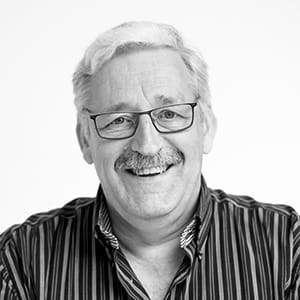 Richard GF Visser is Professor and Director of Plant Breeding at Wageningen University and Research (The Netherlands). He is an elected member of the Dutch scientific society Koninklijke Hollandse Maatschappij der Wetenschappen (2015, lifetime), member of the Board (2012 – present), president (2016-2020) and past president (2020-2024) of EUCARPIA, member of the Academic Council of Wageningen University and Research (2010-2018) and member of the Board of the European Association of Potato Researchers (2008-2016), among others. His research interests focus on improving the efficiency and effectiveness of breeding programs by deploying new technologies such as genomic information, gene editing techniques and artificial intelligence. Also, his interests focus on plant developmental biology (including traits related to plant architecture) and the use of genetics and genomics to address biological questions in crop plants, which should lead to the design of high yielding and excellent quality crops that can be produced in all kinds of environments in a sustainable way for different types of agriculture and horticulture such as strip cropping and mixed cropping, but also controlled environment agriculture.
Richard GF Visser is Professor and Director of Plant Breeding at Wageningen University and Research (The Netherlands). He is an elected member of the Dutch scientific society Koninklijke Hollandse Maatschappij der Wetenschappen (2015, lifetime), member of the Board (2012 – present), president (2016-2020) and past president (2020-2024) of EUCARPIA, member of the Academic Council of Wageningen University and Research (2010-2018) and member of the Board of the European Association of Potato Researchers (2008-2016), among others. His research interests focus on improving the efficiency and effectiveness of breeding programs by deploying new technologies such as genomic information, gene editing techniques and artificial intelligence. Also, his interests focus on plant developmental biology (including traits related to plant architecture) and the use of genetics and genomics to address biological questions in crop plants, which should lead to the design of high yielding and excellent quality crops that can be produced in all kinds of environments in a sustainable way for different types of agriculture and horticulture such as strip cropping and mixed cropping, but also controlled environment agriculture.
Louise O. Fresco
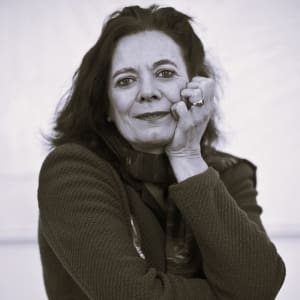 Prof. Dr. Louise Fresco (PhD in Tropical Crop Science at Wageningen University, Netherlands) bridges scientific research with policy implementation, focusing on global food security and sustainable agricultural development. She is a member of eight Scientific Academies and holds four honorary doctorates. She chairs the supervisory board of the national opera and ballet. Ten years of her career were spent at the Food and Agriculture Organisation of the UN. She is a non-Executive Director on the board of Syngenta as well as of various philanthropies while previously she served on the supervisory boards of companies like Rabobank and Unilever and at the board of the Royal Concertgebouw Orchestra. As president of the executive board of Wageningen University & Research (WUR) between 2014 and 2022, she was responsible for Wageningen University and the Wageningen Research Foundation. Under her leadership, WUR’s position within society was fortified, and its presence in the public debate was increased. Furthermore, in June 2022, Professor Fresco was appointed Commander in the Order of the Netherlands Lion in recognition of her unmatched commitment to society. In 2024 the French government appointed her Chevalier in the Ordee National du Merite.
Prof. Dr. Louise Fresco (PhD in Tropical Crop Science at Wageningen University, Netherlands) bridges scientific research with policy implementation, focusing on global food security and sustainable agricultural development. She is a member of eight Scientific Academies and holds four honorary doctorates. She chairs the supervisory board of the national opera and ballet. Ten years of her career were spent at the Food and Agriculture Organisation of the UN. She is a non-Executive Director on the board of Syngenta as well as of various philanthropies while previously she served on the supervisory boards of companies like Rabobank and Unilever and at the board of the Royal Concertgebouw Orchestra. As president of the executive board of Wageningen University & Research (WUR) between 2014 and 2022, she was responsible for Wageningen University and the Wageningen Research Foundation. Under her leadership, WUR’s position within society was fortified, and its presence in the public debate was increased. Furthermore, in June 2022, Professor Fresco was appointed Commander in the Order of the Netherlands Lion in recognition of her unmatched commitment to society. In 2024 the French government appointed her Chevalier in the Ordee National du Merite.
Louise O. Fresco – personal website
Margarita Arboix
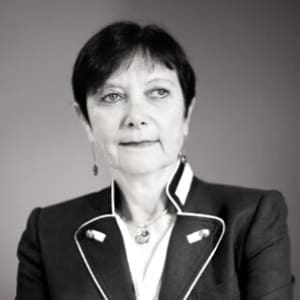 Margarita Arboix has been rector of the Autonomous University of Barcelona (UAB) from 2016 to 2020. Born in Ribesalbes, Castelló, on August 1, 1950, with a degree in Biology from the University of Barcelona and a PhD in Biology from the UAB, she joined the Department of Pharmacology of the Faculty of Medicine at the UAB in 1976. She has devoted her teaching and research career to the area of pharmacology, and in 1993 she was appointed full professor at the UAB. She has been dean of the Faculty of Veterinary Medicine and director of the Department of Pharmacology, Therapeutics and Toxicology of this University. She has also been deputy director general of Veterinary Medicines at the Spanish Agency of Medicines and Health Products of the Ministry of Health and Consumption, and director of the Regional Health Services in Barcelona. She has been general director of Agriculture and Livestock of the Spanish Ministry of the Environment and Rural and Marine Affairs. She was a member of the European Committee of Veterinary Medicine of the European Medicines Agency and chaired the European Group on Antimicrobial Resistance. In addition, she has also been a member of the Expert Panel on Feed Additives of the European Food Safety Authority and of the Scientific Committee of the Spanish Agency for Food Safety and Nutrition. In 2019 she was appointed member of the Royal Academy of Pharmacy of Catalonia.
Margarita Arboix has been rector of the Autonomous University of Barcelona (UAB) from 2016 to 2020. Born in Ribesalbes, Castelló, on August 1, 1950, with a degree in Biology from the University of Barcelona and a PhD in Biology from the UAB, she joined the Department of Pharmacology of the Faculty of Medicine at the UAB in 1976. She has devoted her teaching and research career to the area of pharmacology, and in 1993 she was appointed full professor at the UAB. She has been dean of the Faculty of Veterinary Medicine and director of the Department of Pharmacology, Therapeutics and Toxicology of this University. She has also been deputy director general of Veterinary Medicines at the Spanish Agency of Medicines and Health Products of the Ministry of Health and Consumption, and director of the Regional Health Services in Barcelona. She has been general director of Agriculture and Livestock of the Spanish Ministry of the Environment and Rural and Marine Affairs. She was a member of the European Committee of Veterinary Medicine of the European Medicines Agency and chaired the European Group on Antimicrobial Resistance. In addition, she has also been a member of the Expert Panel on Feed Additives of the European Food Safety Authority and of the Scientific Committee of the Spanish Agency for Food Safety and Nutrition. In 2019 she was appointed member of the Royal Academy of Pharmacy of Catalonia.
Johan Six
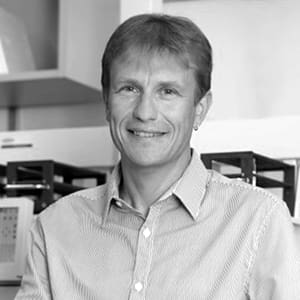 Johan Six chairs the Sustainable Agroecosystems group at ETH-Zurich. He is a Chancelor’s Fellow at the University of California-Davis, Fellow of the American Association for the Advancement of Science, Philippe Duchaufour Medalist in Soil Science of the European Geosciences Union, Distinguished Ecologist at Colorado State University and is listed in the 2015, 2016, 2017 and 2019 Highly Cited Researchers list of the Web of Science. Prior to joining ETH-Zurich, he developed his line of research focusing on the interrelationship between ecosystem management options, global change and biogeochemical cycling. Subsequently, he has continued the research program with increased emphasis on landscape analysis and global Food Security. More specifically, he studies the complex interactions between soil, soil biota and carbon and nitrogen cycling in terrestrial ecosystems, especially in agroecosystems. His general approach is to carry out experimental work from the micro to the landscape scale and then integrate it with modeling to interpolate and extrapolate it to regional and global scales. Modeling also aims to identify gaps in our knowledge, generate testable hypotheses and test the mechanistic basis of biogeochemical models. In addition, many of the projects he conducts are in collaboration with economic and social scientists to holistically assess the sustainability and resilience of agricultural production and food systems.
Johan Six chairs the Sustainable Agroecosystems group at ETH-Zurich. He is a Chancelor’s Fellow at the University of California-Davis, Fellow of the American Association for the Advancement of Science, Philippe Duchaufour Medalist in Soil Science of the European Geosciences Union, Distinguished Ecologist at Colorado State University and is listed in the 2015, 2016, 2017 and 2019 Highly Cited Researchers list of the Web of Science. Prior to joining ETH-Zurich, he developed his line of research focusing on the interrelationship between ecosystem management options, global change and biogeochemical cycling. Subsequently, he has continued the research program with increased emphasis on landscape analysis and global Food Security. More specifically, he studies the complex interactions between soil, soil biota and carbon and nitrogen cycling in terrestrial ecosystems, especially in agroecosystems. His general approach is to carry out experimental work from the micro to the landscape scale and then integrate it with modeling to interpolate and extrapolate it to regional and global scales. Modeling also aims to identify gaps in our knowledge, generate testable hypotheses and test the mechanistic basis of biogeochemical models. In addition, many of the projects he conducts are in collaboration with economic and social scientists to holistically assess the sustainability and resilience of agricultural production and food systems.
Marta Hugas
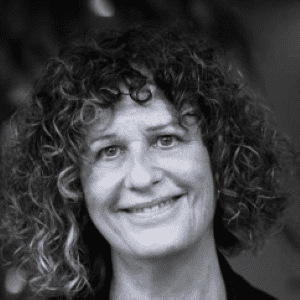 Marta Hugas was the scientific director of the European Food Safety Authority and also an IRTA professional for 17 years, until 2002. Hugas currently chairs the scientific council of the French Agency for Food, Environmental and Occupational Health and Safety (ANSES). He has extensive experience in the public safety sector and a strong background in veterinary medicine, epidemiology, life sciences, infectious diseases and food microbiology. Hugas was part of the scientific group that supported the preparation of the 2021 UN Food Systems Summit, where she coordinated, together with Prof. Mario Herrero Acosta, the scientific paper focused on actions against hunger and towards healthy diets.
Marta Hugas was the scientific director of the European Food Safety Authority and also an IRTA professional for 17 years, until 2002. Hugas currently chairs the scientific council of the French Agency for Food, Environmental and Occupational Health and Safety (ANSES). He has extensive experience in the public safety sector and a strong background in veterinary medicine, epidemiology, life sciences, infectious diseases and food microbiology. Hugas was part of the scientific group that supported the preparation of the 2021 UN Food Systems Summit, where she coordinated, together with Prof. Mario Herrero Acosta, the scientific paper focused on actions against hunger and towards healthy diets.
Jaap van Milgen
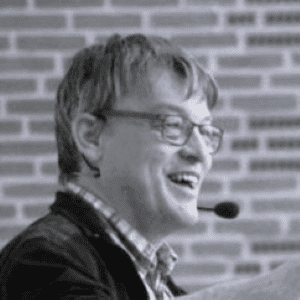 Jaap van Milgen obtained a Master’s degree from Wageningen University and a PhD in Animal Science from the University of Illinois in 1991. He joined the French Institut national de la recherche agronomique (INRA) as a postdoctoral researcher in 1992. In 1994 he obtained a permanent position to work on nutritional modeling of growth in pigs. He also developed an extensive research program on energy nutrition and amino acids. Jaap van Milgen has published more than 100 articles in peer-reviewed journals. He is co-author of the software InraPorc, a tool to evaluate nutritional strategies in pigs. From 2012 to 2018, he was head of the Pegase research unit in Rennes. Pegase’s mission is to “identify the biological bases and devise levers by which animal production contributes efficiently and responsibly to sustainable development.” Jaap van Milgen has been the coordinator of the Feed-a-Gene project (www.feeda-gene.eu), funded by the European Union’s Horizon 2020 program to adapt feed, animals and feeding techniques to improve the efficiency and sustainability of monogastric livestock production systems.
Jaap van Milgen obtained a Master’s degree from Wageningen University and a PhD in Animal Science from the University of Illinois in 1991. He joined the French Institut national de la recherche agronomique (INRA) as a postdoctoral researcher in 1992. In 1994 he obtained a permanent position to work on nutritional modeling of growth in pigs. He also developed an extensive research program on energy nutrition and amino acids. Jaap van Milgen has published more than 100 articles in peer-reviewed journals. He is co-author of the software InraPorc, a tool to evaluate nutritional strategies in pigs. From 2012 to 2018, he was head of the Pegase research unit in Rennes. Pegase’s mission is to “identify the biological bases and devise levers by which animal production contributes efficiently and responsibly to sustainable development.” Jaap van Milgen has been the coordinator of the Feed-a-Gene project (www.feeda-gene.eu), funded by the European Union’s Horizon 2020 program to adapt feed, animals and feeding techniques to improve the efficiency and sustainability of monogastric livestock production systems.



